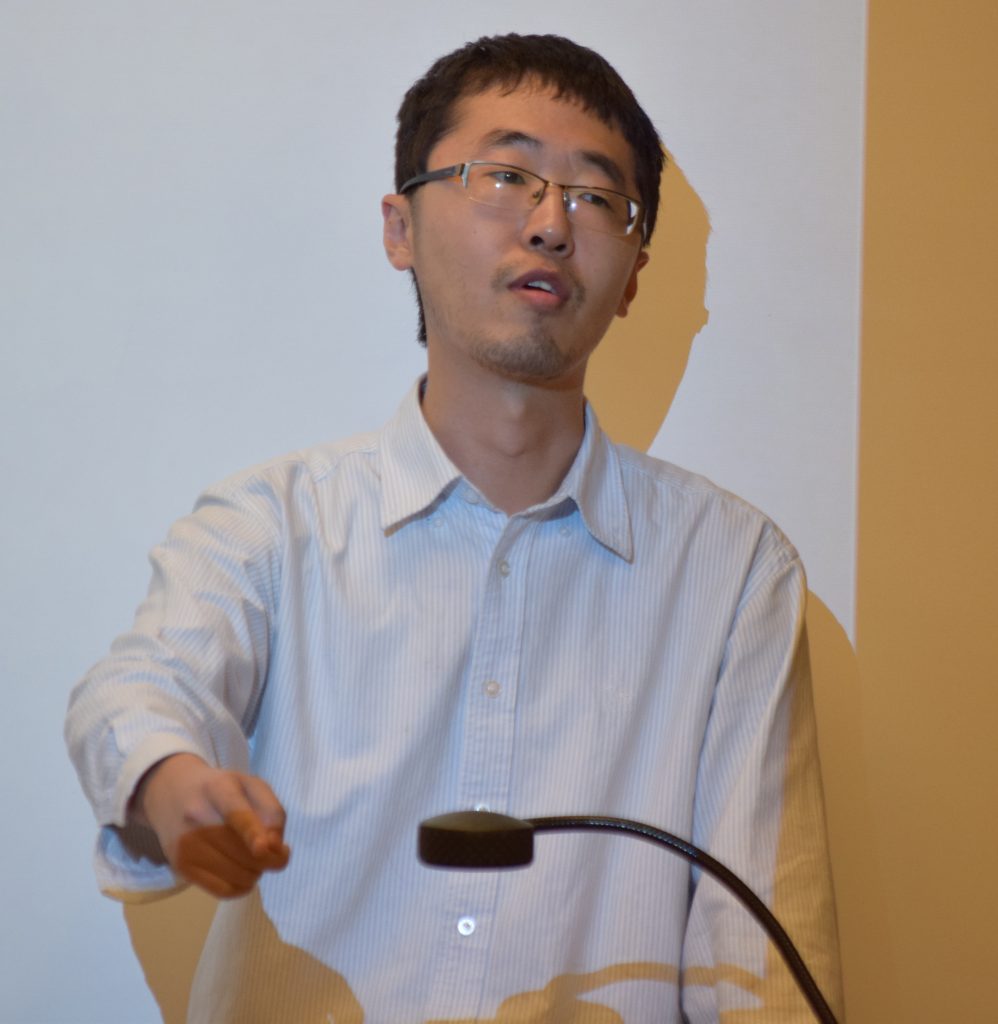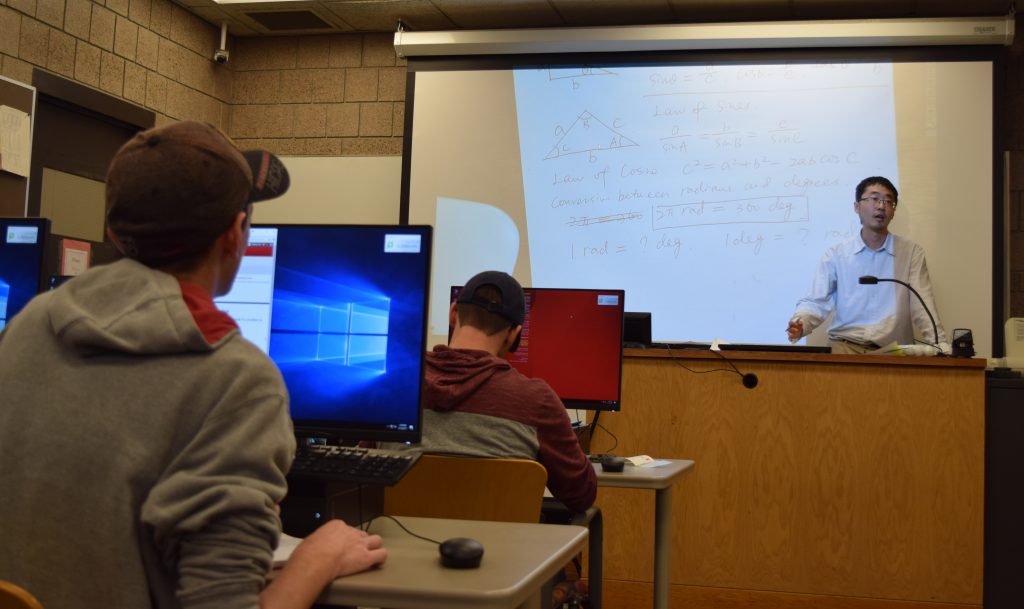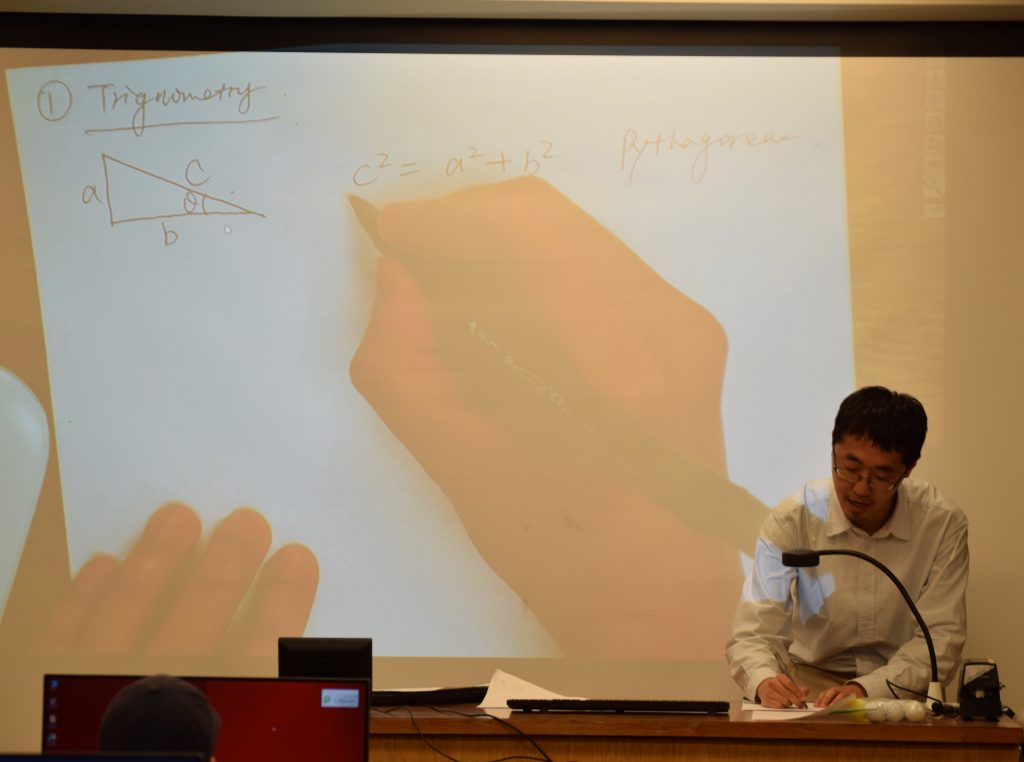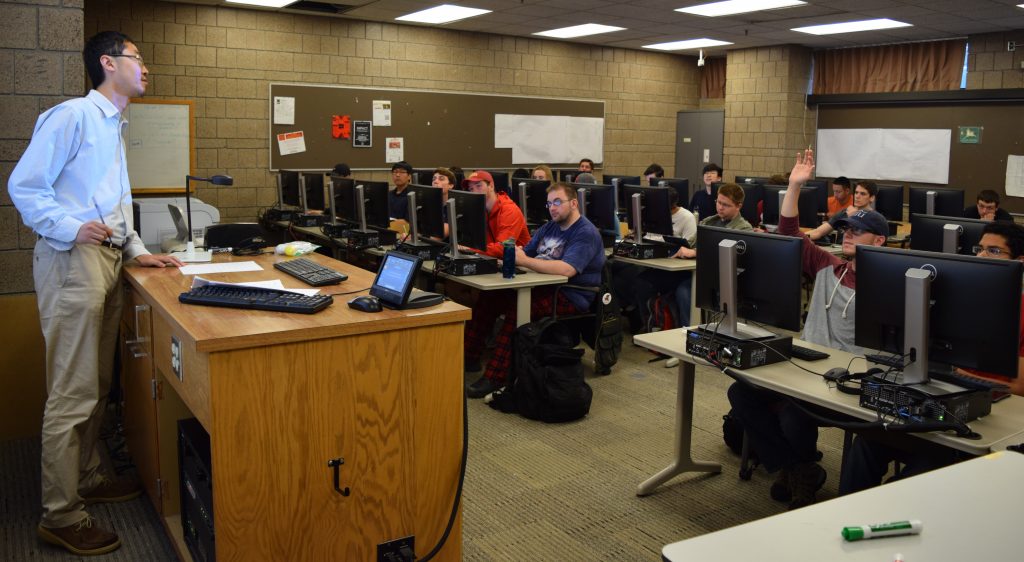
From the moment he arrived on campus in the fall of 2012, Beiwen Li felt welcomed by the Iowa State University community.
“I still remember my first day as a student at Iowa State I got lost on campus,” Li recollected. “I was holding a map and trying to figure out where to go and then a couple of people stopped by to ask if I needed any help. I felt very welcomed here and the people were really nice. I just really like the people here in Iowa.”
Li graduated with his MS in mechanical engineering in 2014 and then followed his major professor – Dr. Song Zhang – to Purdue University where Li graduated with his PhD in ME in 2017. Before even defending his dissertation, Li applied for a job as an assistant professor at Iowa State, and shortly after graduating he was offered the position.

In addition to being familiar with area, Li said his decision to come back to Ames was largely attributed to the research taking place on this campus.
“I can see there’s potential for having a bright future here at Iowa State so I did not hesitate to accept this job,” he said.
Li added that he likes that there are also many opportunities for undergraduate students to gain research experience at Iowa State which he thinks can be invaluable when applying for jobs and graduate programs.
Li said that he also likes the breadth of the ME curriculum at Iowa State, which includes instruction in traditional ME concepts like controls, fluids, and heat transfer as well as emerging areas such as computer visions/graphics and geometric modeling.
Li’s interest in mechanical engineering can be traced back to his upbringing in Jinan, China, a city with a population of just over seven million roughly 265 miles south of Beijing. He became interested in physics and math in high school and studied optoelectronics at Beijing University of Aeronautics and Astronautics.
“I was always fascinated by optics,” said Li. “Phenomena like rainbows were always a mystery to me so that’s why I chose to study an optics related field.”
In graduate school, Li’s focus shifted more toward three-dimensional (3D) scanning and optical metrology.
“When I was a PhD student my major focus was how to develop a faster and more accurate 3D scanner, so our focus was on how to get higher quality data and how to make the algorithm better and more robust,” he said.

As a PhD student Li did 3D imaging for a bio-inspired robotics study in collaboration with a professor at Purdue where he measured a flapping-wing robot with the intention of eventually measuring the flapping wings of a real animal such as a humming bird.
“The goal of the research was to see if we could create a flapping-wing robot that would mimic the mechanics of a real flying animal,” said Li. “We were interested in knowing the strain and stress of the wings so we could do a mechanics analysis to get some insight. After measuring the flapping-wing robot I was trying to develop a strain and stress computational framework using the 3D data we obtained.”
Li said that the research helped him to learn more about differential geometry and computational mechanics.
“What I like about this research is that I’m no longer just simply developing algorithms for 3D scanning but I’m also doing some analysis upon that, which will also be my focus at Iowa State. I want to do analysis to create insight from 3D data for different applications,” he said.
Outside of his research and academic responsibilities, Li enjoys playing table tennis and soccer and is a supporter of the Chinese national team. He also likes music, particularly Bruno Mars. He has played piano since he was a child and picked up the guitar around the time he went to college. He said that having the knowledge of the piano, gave him the theoretical framework that made it easier to learn guitar. Li also sings when he’s in the confines of his home, adding that “although I’m not good, I like it.”
